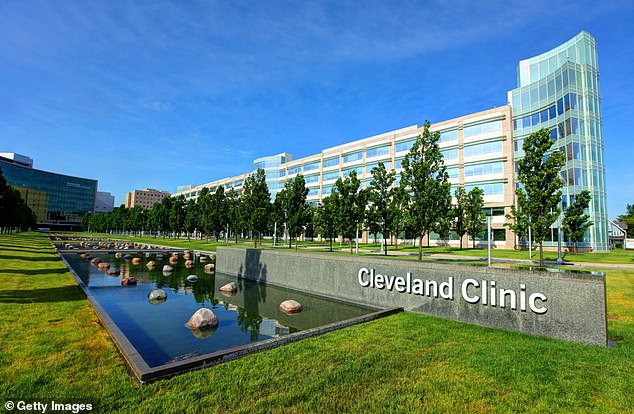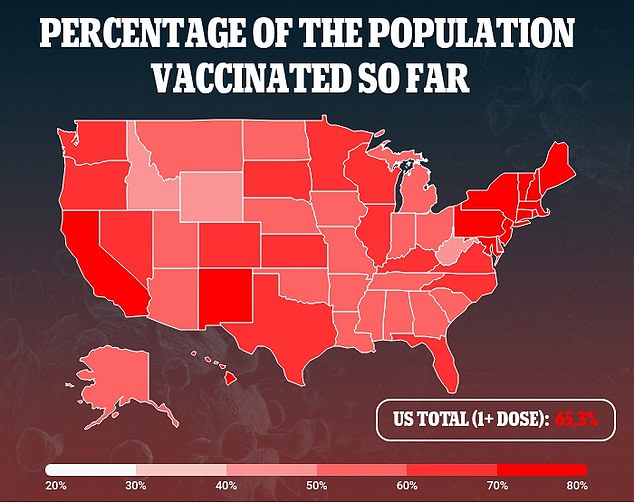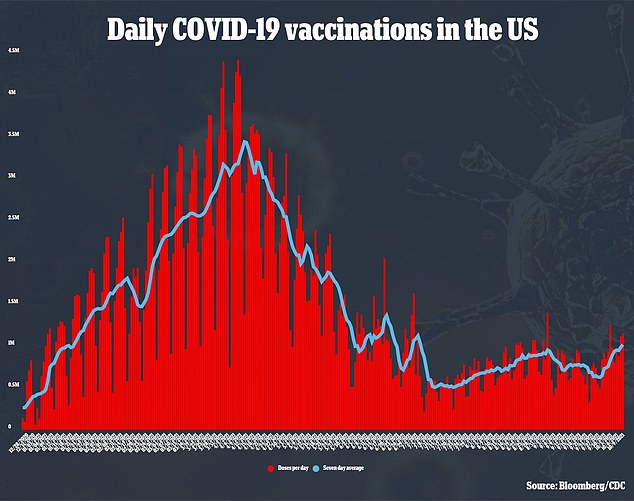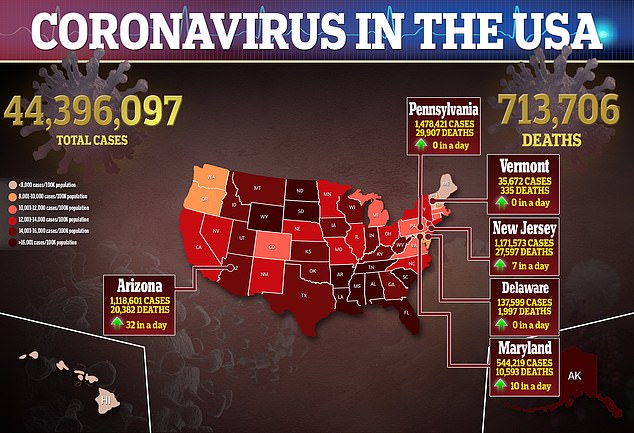The Cleveland Clinic will no longer offer organ transplants to people unvaccinated against COVID-19 due to concerns patients could be at a high risk of contracting the virus.
The hospital says the reason for the policy change is the immunosuppressant drugs transplant recipients must take after receiving a new organ so their body does not reject it.
Unvaccinated people will also no longer be able to become a living organ donor over fears Covid may be able to transmit through the procedure.
The move comes days after University of Colorado Health (UCHealth) in Aurora, made headlines for implementing a similar policy and denying a woman an opportunity to receive a new kidney after she refused the vaccine.

The Cleveland Clinic (pictured) will now require people to be vaccinated in order to receive an organ transplant or become a live donor. This is because recipients must take immunosuppressant medication following the receival of a new organ, leaving them vulnerable to the virus
‘The health and safety of our patients is our top priority,’ Cleveland Clinic wrote in a statement sent to DailyMail.com.
‘Cleveland Clinic has recently developed safety protocols for solid organ transplantation that require COVID-19 vaccination to be an active transplant candidate or living donor.
‘Vaccination is particularly important in these patients for their safety.’
Transplant recipients will have until November 1 to get vaccinated, or they will be removed from the waitlist.
For transplants involving a living donor, such as for kidney and liver transplants, the person giving the organ will need to be vaccinated as well.
‘Living donation for organ transplantation has been a life-saving treatment, but it is not without risks to the donor,’ the clinic wrote in the statement.
‘For the living donor, preventing COVID-19 infection around the time of their surgery and recovery is crucial.
‘We continually strive to minimize risk to our living donors, and vaccination is an important component to ensure the safest approach and optimal outcomes for donors.’
Health experts have discovered the potential for the virus to transmit from a living donor to the recipient after the transplant.
Organ transplant recipients are among the most vulnerable people to COVID-19.
After receiving the organ, recipients will often take immunosuppressant drugs for as short as around six months to potentially the rest of their lives.
This is to prevent a person’s immune system from rejecting the new organ as an unrecognizable foreign object.
These drugs also weaken a person’s immune system, however, and it is hard for them to fight infections like Covid.


The vaccines may also not be particularly effective in people taking immunosuppressant drugs, though.
A Johns Hopkins study from June found that people who had recently received kidney transplants were not generating a strong immune response to the COVID-19 vaccines.
Less than one out of every five kidney transplant recipients in the study generated a strong anti-body response to the vaccine.
A later Johns Hopkins study found that organ transplant recipients were showing acceptable antibody responses after vaccine booster doses, though.

Leilani Lutali (pictured), 56, who has renal failure has been denied a life-saving kidney transplant because she is unvaccinated due to religious beliefs
The Cleveland Clinic joins UCHealth in decinding to bar unvaccinated people from receiving organ transplants.
Leilani Lutali, a born-again Christian woman from Colorado, made headlines last week when the hospital would not approve her kidney transplant surgery until she got the COVID-19 vaccine.
For people with kidney disease, receiving a transplant instead of receiving treatment like dialysis can greatly lengthen their lifespan.
But Lutali said that the fetal cell lines used to develop some of the vaccines go against her Christian faith.
Fetal cell lines, which are laboratory-grown cells based on aborted fetal cells that were collected in the 1970s and 1980s, were used for research and development of the shots, along with many other popular medications.
‘As a Christian, I can’t support anything that has to do with abortion of babies, and the sanctity of life for me is precious,’ she told the Associated Press.

Source link : https://www.dailymail.co.uk/health/article-10081605/Cleveland-Clinic-stop-performing-organ-transplants-unvaccinated-people.html











